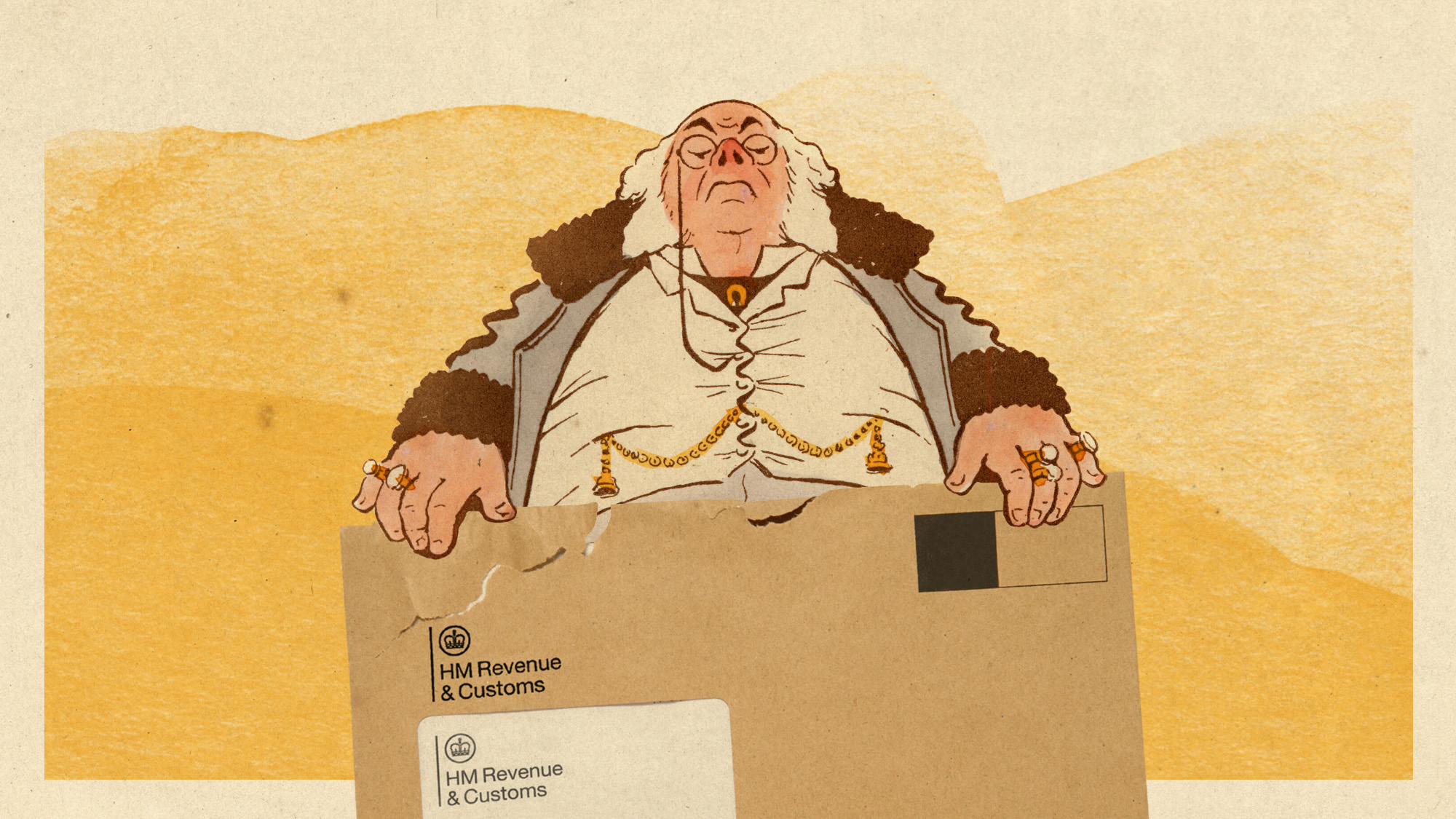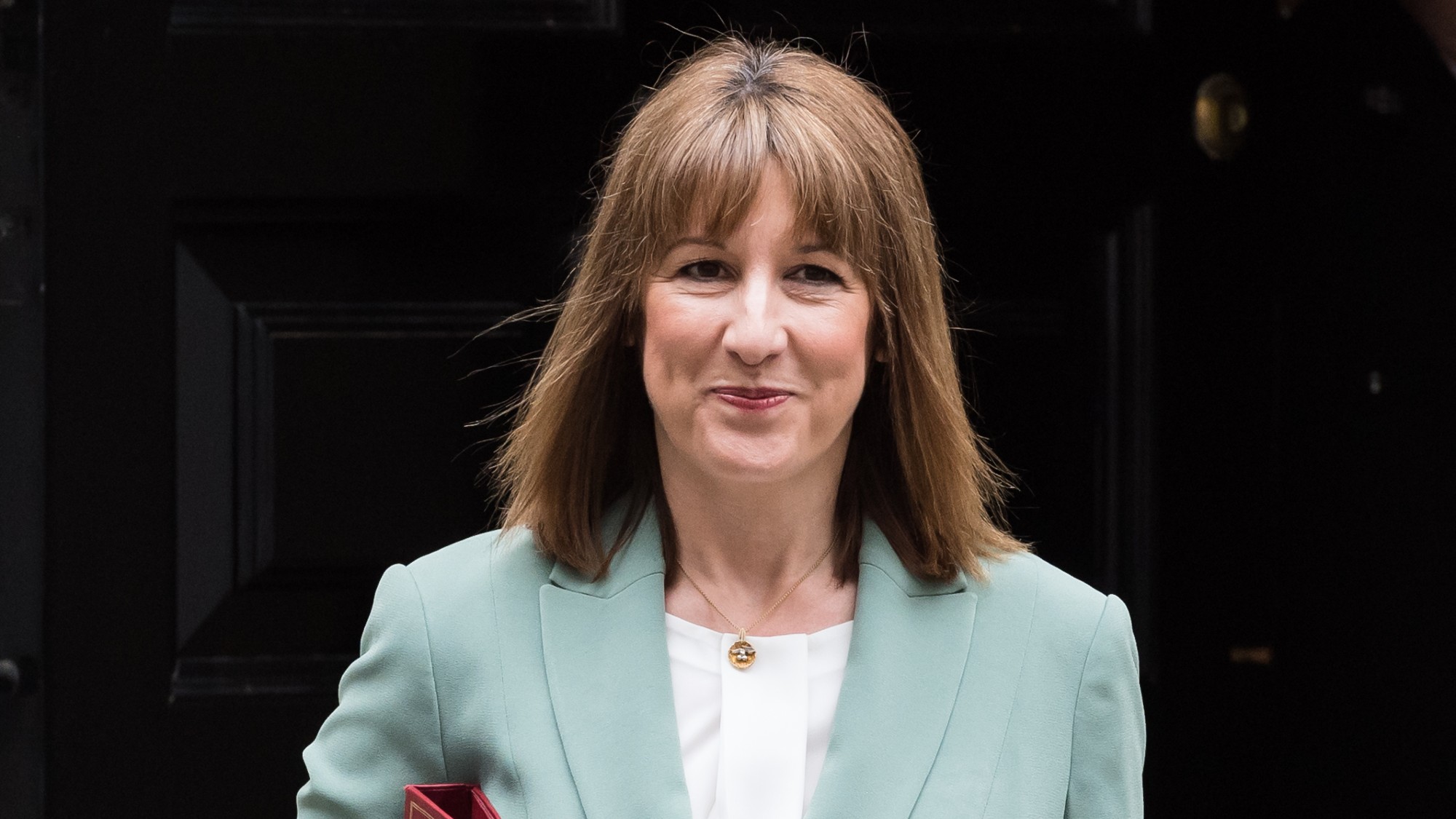Calls for overhaul of inheritance tax system - how would it work?
Resolution Foundation proposes ‘lifetime receipts tax’ allowing everyone an untaxed lump sum

A free daily email with the biggest news stories of the day – and the best features from TheWeek.com
You are now subscribed
Your newsletter sign-up was successful
Inheritance tax should be scrapped and replaced with a fairer system that would be harder to avoid, according to a leading British think tank.
The Resolution Foundation is calling for a new tax that “would raise more for the state and would encourage families to pass their wealth to younger members”, says The Times.
The proposal, outlined in a new report, is part of a campaign led by the think tank’s chairman, former Conservative minister Lord Willetts, aimed at tackling intergenerational inequality.
The Week
Escape your echo chamber. Get the facts behind the news, plus analysis from multiple perspectives.

Sign up for The Week's Free Newsletters
From our morning news briefing to a weekly Good News Newsletter, get the best of The Week delivered directly to your inbox.
From our morning news briefing to a weekly Good News Newsletter, get the best of The Week delivered directly to your inbox.
Chancellor Philip Hammond has ordered a separate review of inheritance tax (IHT), to be conducted by the Office of Tax Simplification, an independent arm of the Treasury. “The scope of the exercise suggests that while some loopholes might be eliminated, it is unlikely to lead to significant reform,” says the Financial Times.
But, as the newspaper notes, there are “growing calls among left-of-centre politicians, both in the UK and internationally, to use wealth taxes to create a fairer society”.
What is the current situation?
At the moment, most married couples can leave up to £850,000 to their direct descendants tax free. The tax is only levied on about 4% of estates, and raises just 77p of every £100 of taxation.
A free daily email with the biggest news stories of the day – and the best features from TheWeek.com
“It is Britain’s most hated tax, yet hardly anyone pays it,” says The Guardian.
A 2015 opinion poll by YouGov found that 59% of respondents opposed it, while a report by the Fabian Society said that people from across the political spectrum “disliked the levy because it was imposed at a time of grief on money on which the deceased had already paid tax”.
Among people’s gripes are that soaring property prices in the UK “have dragged more estates into the IHT net”, adds the FT.
Economic analyst Adam Corlett, author of the Resolution Foundation author, said: “Inheritances are already worth over £100bn a year, and their doubling over the next 20 years means they are going to play an even larger role in shaping British society.
“But the current system of inheritance tax is not fit to deal with this societal shift. It currently manages the uniquely bad twin feat of being both wildly unpopular and raising very little revenue.”
What is the Resolution Foundation proposing?
The think tank is calling for everyone to get a lifetime allowance for the receipt of cash/asset gifts: it suggests £125,000. Anything received beyond that would be then be taxed in bands - 20p in the pound up to £500,000, and 30p after that.
According to the report, the new tax would deter avoidance and raise an estimated £11bn a year in 2021, compared with £6bn under the present system.
One aim is to “push money through to millennials earlier, many of whom are priced out of the housing market and will not inherit anything until they are 61, on average”, says The Times. By that age, the windfall has arrived “far too late to help with buying a home or bringing up children”, the report argues.
Supporting the recommendation, MoneyWeek editor Merryn Somerset Webb said: “It takes the strain from the old (they can’t avoid it); it encourages a wider spread of wealth (the more people you leave your cash to the less tax is paid); and it’s not too tough (the marginal rate stays lower than it is now)”.
-
 The Week Unwrapped: Do the Freemasons have too much sway in the police force?
The Week Unwrapped: Do the Freemasons have too much sway in the police force?Podcast Plus, what does the growing popularity of prediction markets mean for the future? And why are UK film and TV workers struggling?
-
 Properties of the week: pretty thatched cottages
Properties of the week: pretty thatched cottagesThe Week Recommends Featuring homes in West Sussex, Dorset and Suffolk
-
 The week’s best photos
The week’s best photosIn Pictures An explosive meal, a carnival of joy, and more
-
 Autumn Budget: will Rachel Reeves raid the rich?
Autumn Budget: will Rachel Reeves raid the rich?Talking Point To fill Britain’s financial black hole, the Chancellor will have to consider everything – except an income tax rise
-
 Pros and cons of a wealth tax
Pros and cons of a wealth taxPros and Cons Raising revenue and tackling inequality vs. the risk of capital flight and reduced competitiveness
-
 Is Rachel Reeves going soft on non-doms?
Is Rachel Reeves going soft on non-doms?Today's Big Question Chancellor is reportedly considering reversing controversial 40% inheritance tax on global assets of non-doms, after allegations of 'exodus' of rich people
-
 Foreigners in Spain facing a 100% tax on homes as the country battles a housing crisis
Foreigners in Spain facing a 100% tax on homes as the country battles a housing crisisUnder the Radar The goal is to provide 'more housing, better regulation and greater aid,' said Spain's prime minister
-
 What's next for electric vehicles under Trump?
What's next for electric vehicles under Trump?Today's Big Question And what does that mean for Tesla's Elon Musk?
-
 The row over UK maternity pay
The row over UK maternity payTalking Points Tory leadership hopeful Kemi Badenoch implied that taxpayer-funded benefit was 'excessive' and called for 'greater responsibility'
-
 Will the UK economy bounce back in 2024?
Will the UK economy bounce back in 2024?Today's Big Question Fears of recession follow warning that the West is 'sleepwalking into economic catastrophe'
-
 America's most in-demand job
America's most in-demand jobFeature And more of the week's best financial insight